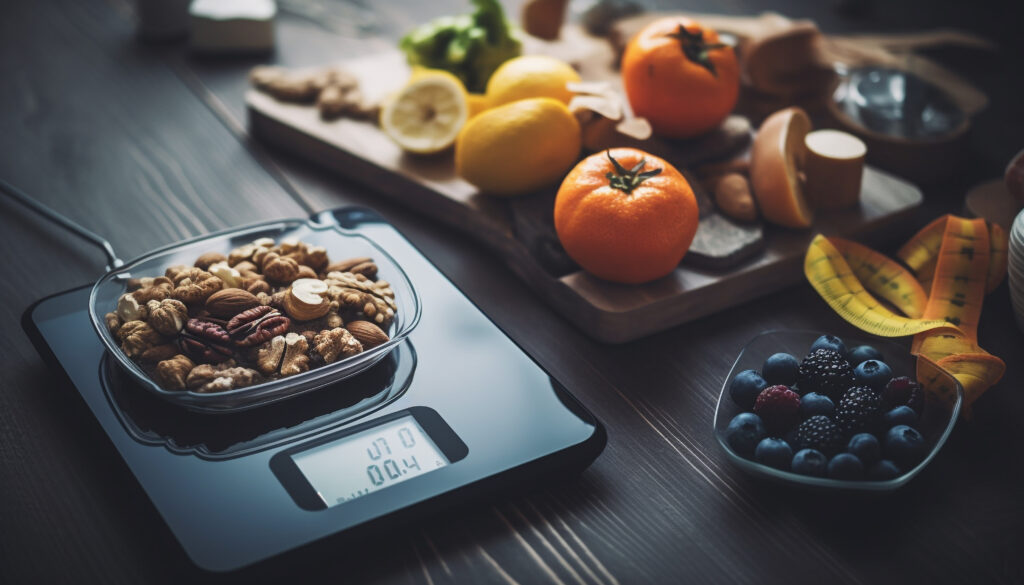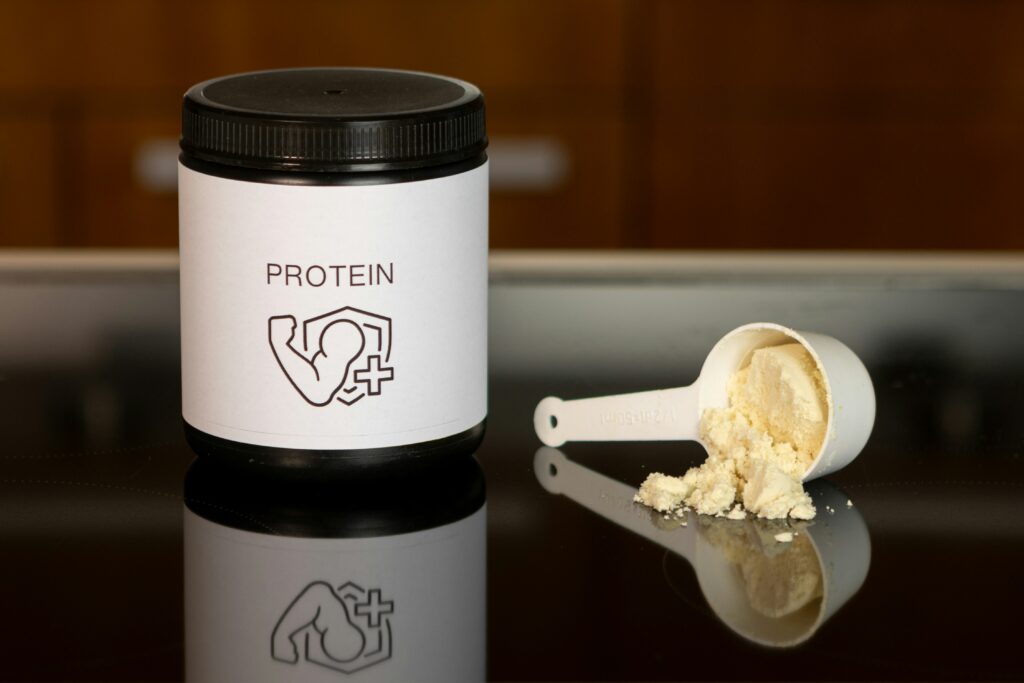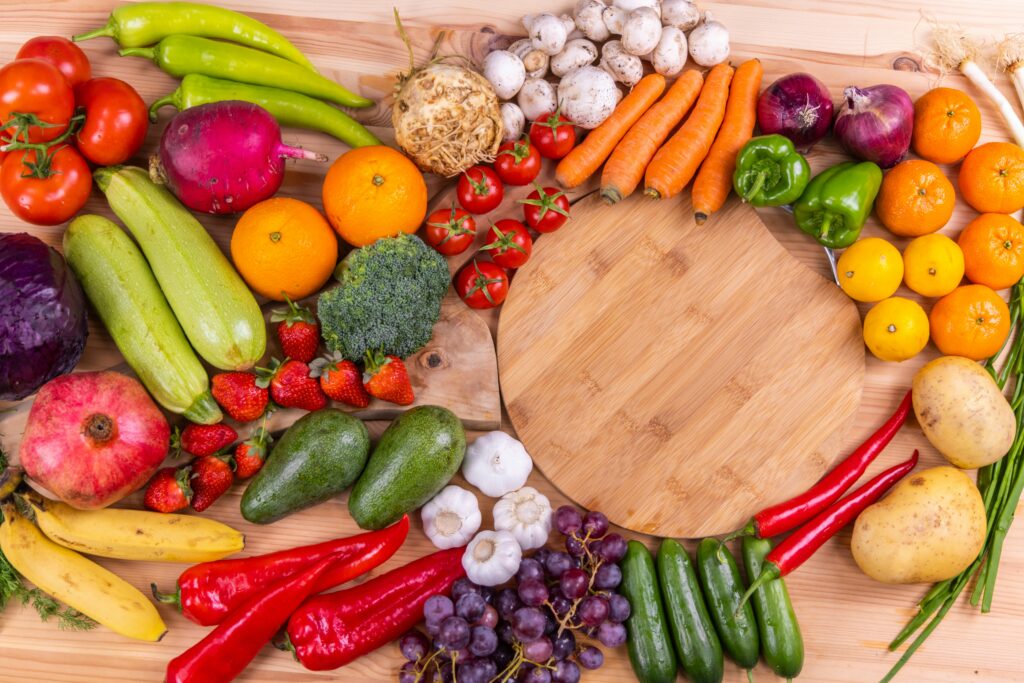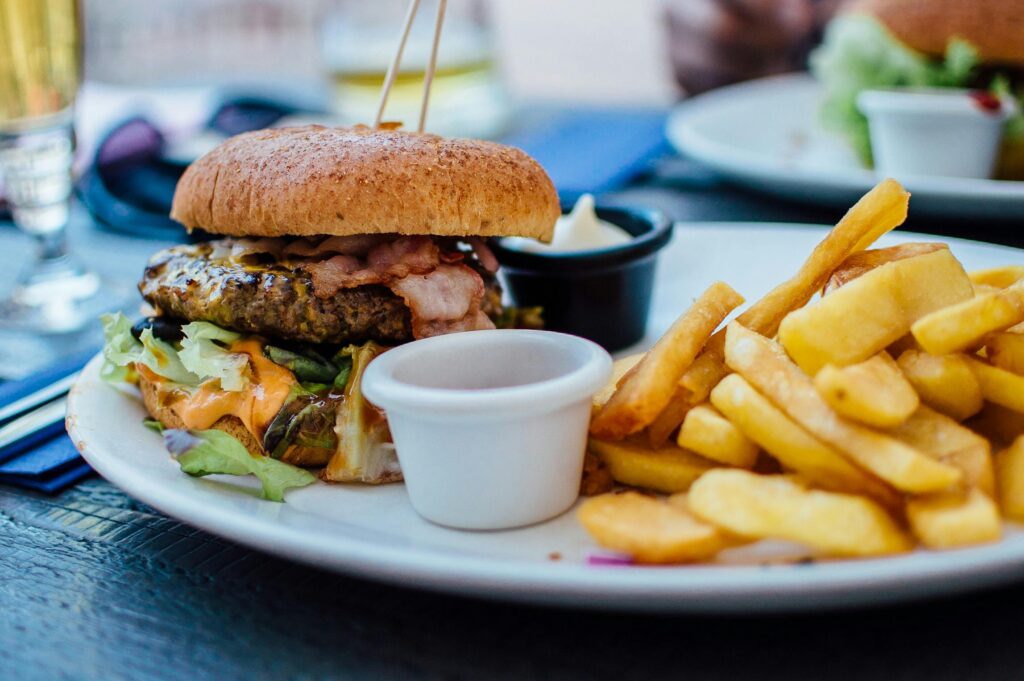1.Count Your Calories!

There should be no longer any doubt in anyone’s mind that losing weight is a matter of calories in vs calories out. Weighing your food and counting your calories in the beginning will tremendously help in jump starting your weight loss. It is generally recommended to start with a modest deficit of 200-500 calories. Apps like myfitnesspal and many other AI based apps can be used to get an estimate of your calorie intake.
2.Prioritize Protein

Increasing your protein intake has many positive outcomes. Protein is essential in recovery espeially after physical activity, It especially helps during weight loss because it helps wit satiety and makes you feel full reducing hnger and cravings. Protein is also different from other macro nutrients like carbs and Fats as the body uses way more energy in digesting it. For comaprison, 20-30% of the calories you eat from protein are used in breaking down and absorbing the protein, while for carbs you burn 5-10% and for fats you only burn 1-3%. Protein sorces include
- Chicken breast – 31g protein per 100g
- Turkey – 29g per 100g
- Eggs – 6g per egg (1 large)
- Greek yogurt – 10g per 100g
- Cottage cheese – 11g per 100g
- Milk – 8g per cup (250ml)
- Beef (lean cuts) – 26g per 100g
- Fish
- Tuna – 25g per 100g
- Salmon – 20g per 100g
- Sardines – 21g per 100g
- Prawns/Shrimp – 20g per 100g
- Good for vegetarians and vegans; some may need to be combined for full amino acid profiles.
- Lentils – 9g per 100g (cooked)
- Chickpeas – 9g per 100g (cooked)
- Black beans – 8g per 100g
- Tofu – 8g per 100g
- Tempeh – 19g per 100g
- Edamame – 11g per 100g
- Quinoa – 4g per 100g (cooked)
- Soy milk – 7g per cup
- Peanuts – 25g per 100g
- Almonds – 21g per 100g
- Pumpkin seeds – 30g per 100g
- Chia seeds – 17g per 100g
3.Eat More Fruits And Veggies

It’s no secret that fruits and vegetables are really good for you. They are high in vitamins (like A, C, K, folate) and minerals (like potassium, magnesium).
Provide essential nutrients with minimal calories—ideal for weight management. Other than containing heaps of micronutrients, They also contain fiber which helps massively with satiety. Many fruits are rich in Antioxidants and Phytochemicals which protect cells from oxidative stress and inflammation.
May lower the risk of chronic diseases like heart disease, cancer, and diabetes.. In short, fruits and vegetables are vital for your health so don’t miss out on them
4.Move More!

A great way to facilitate a calorie deficit is to burn off more calories, and how exactly do you do that? by moving more. Going to the gym, walking more, biking, swimming, running or playing a sport. Choose your favorite activities you actually enjoy ad stick to them. This will certainly help you lose weight but wil aslo greatly benefit your heart, joints and your whole body
1. Walking
Advantages:
- Low-impact and joint-friendly (great for all ages)
- Improves cardiovascular health
- Supports weight management
- Enhances mood and reduces anxiety
- Boosts circulation and muscle tone
- Can be easily integrated into daily life
2. Running
Advantages:
- High calorie burn; supports fat loss
- Strengthens heart and lungs
- Builds lower body strength and endurance
- Elevates mood through endorphin release (“runner’s high”)
- Improves bone density
3. Swimming
Advantages:
- Full-body workout with low joint impact
- Enhances lung capacity and cardiovascular fitness
- Builds strength, especially in back, shoulders, and core
- Ideal for injury recovery or arthritis sufferers
- Improves flexibility and coordination
4. Cycling
Advantages:
- Boosts leg strength and endurance
- Low impact on joints (especially knees)
- Improves cardiovascular health
- Supports weight loss
- Can be done indoors or outdoors
5. Strength Training (e.g., weights, resistance bands)
Advantages:
- Builds muscle and bone density
- Boosts metabolism
- Improves posture and functional strength
- Supports joint stability
- Reduces risk of injury and falls (especially in older adults)
6. Yoga
Advantages:
- Enhances flexibility and balance
- Reduces stress and promotes relaxation
- Builds muscle tone and body awareness
- Improves breathing and focus
- Aids in pain management
5.Avoid processed foods

Although how the scale moves depends entirely on your caloric intake whether it comes from junk food or clean food. Eating mostly healthy whole foods will keep you energized throughout the day and reduce cravings and chances of binging. An ice cream now and then is ok, but ideally 80 % of your nutrition should come from clean whole food. This practice will ensure your are hitting your micronutrient and macronutrient goals while losing weight
1. High in Added Sugars
- Increases risk of obesity, type 2 diabetes, and dental cavities
- Promotes blood sugar spikes and crashes, affecting energy and mood
2. Excess Salt (Sodium)
- Linked to high blood pressure, heart disease, and stroke
- May cause water retention and bloating
3. Unhealthy Fats
- Often contains trans fats or excessive saturated fats
- Raises LDL (“bad”) cholesterol and lowers HDL (“good”) cholesterol
- Increases risk of cardiovascular disease
4. Low Nutritional Value
- Often stripped of fiber, vitamins, and minerals
- “Empty calories” with little to no real nourishment
5. Artificial Additives
- Includes colors, flavors, preservatives, and emulsifiers
- Some may cause digestive issues, allergies, or behavioral effects in sensitive individuals
6. Overeating and Poor Appetite Regulation
- Engineered to be hyper-palatable (addictive combinations of sugar, salt, fat)
- Can override natural hunger cues, leading to overeating
7. Linked to Chronic Diseases
- High consumption associated with obesity, heart disease, diabetes, and some cancers
- Also linked to depression and poor mental health
8. Environmental Concerns
- Often packaged in plastic, contributing to pollution
- Requires more energy and resources to produce and transport
6.Sleep

Aim to sleep at least 7-9 hours each day. Studies show that sleep disturbances can increase the chances of hormonal imbalances and may result in increased appetite, insulin resistance, and weight gain. Sleep is also vital for recovery from intense exercise. Sleeping adequately ensures that you will be at your best the next day.

